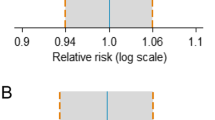Abstract
Objective
We assessed the relative efficacy and safety of adalimumab and biosimilars in patients with active rheumatoid arthritis (RA) presenting an inadequate response to methotrexate (MTX).
Methods
We performed a Bayesian network meta-analysis combining direct and indirect evidence from randomized controlled trials (RCTs) examining efficacy and safety of adalimumab biosimilars versus adalimumab in patients with active RA despite MTX therapy.
Results
Overall, 8 RCTs involving 3577 patients, including 8 biologic types, met the inclusion criteria. MSB11022 is listed at the top left of the diagonal of the league table, as it was associated with the most favorable surface under the cumulative ranking curve (SUCRA) for the American College of Rheumatology 20 (ACR20) response rate; FKB327 is listed at the bottom right of the diagonal of the league table, as it was associated with the least favorable results. Based on SUCRA, MSB11022 presented the highest probability of being the best treatment for achieving the ACR20 response rate (SUCRA = 0.623), followed by PF-06410293, CinnoRA, BI 695501, ABP 50, Exemptia, SB5, adalimumab, and FKB327 (SUCRA = 0.390); no difference was observed in ACR20 response rates between biosimilars and adalimumab. Although statistically non-significant, differences in safety ranking were observed for serious adverse events (SAEs) among the interventions, with MSB11022 presenting the highest probability of being safe (SUCRA = 0.865) and Exemptia the lowest (SUCRA = 0.300).
Conclusion
No significant difference was detected between adalimumab biosimilars and the originator in terms of ACR20 response rates and SAEs in the studied patients.
Zusammenfassung
Ziel
Untersucht wurde die relative Wirksamkeit und Sicherheit von Adalimumab und entsprechenden Biosimilars bei Patienten mit aktiver rheumatoider Arthritis (RA), bei denen das Ansprechen auf Methotrexat (MTX) unzureichend war.
Methoden
Dazu führten die Autoren eine Bayes-Netzwerk-Metaanalyse durch, bei der die direkte und die indirekte Evidenz aus randomisierten kontrollierten Studien (RCT) zur Wirksamkeit und Sicherheit von Adalimumab-Biosimilars vs. Adalimumab bei Patienten mit aktiver RA trotz MTX-Therapie kombiniert wurden.
Ergebnisse
Insgesamt erfüllten 8 RCT mit 3577 Patienten, in denen 8 Typen von Biologika untersucht wurden, die Einschlusskriterien. MSB11022 ist links oben auf der Diagonale der Rangliste aufgeführt, da es mit der günstigsten SUCRA („surface under the cumulative ranking curve“) für die Responserate mit 20 % Verbesserung gemäß American College of Rheumatology (ACR20) einherging; FKB327 ist rechts unten auf der Diagonale der Rangliste aufgeführt, da es mit den ungünstigsten Ergebnissen einherging. Auf Grundlage der SUCRA besteht für MSB11022 die höchste Wahrscheinlichkeit, die beste Behandlung zur Erzielung der ACR20-Responserate zu sein (SUCRA = 0,623), es folgten PF-06410293, CinnoRA, BI 695501, ABP 50, Exemptia, SB5, Adalimumab und FKB327 (SUCRA = 0,390); zwischen Biosimilars und Adalimumab wurde kein Unterschied in Bezug auf die ACR20-Responserate festgestellt. Zwar waren sie statistisch nicht signifikant, doch wurden Unterschiede in der Rangliste der Sicherheit für schwere unerwünschte Ereignisse (SAE) zwischen den Interventionen beobachtet, dabei bestand für MSB11022 höchste Wahrscheinlichkeit, sicher zu sein (SUCRA = 0,865), und für Exemptia die diesbezüglich geringste Wahrscheinlichkeit (SUCRA = 0,300).
Schlussfolgerung
Zwischen Adalimumab-Biosimilars und der Originalsubstanz wurde kein signifikanter Unterschied hinsichtlich der ACR20-Responserate und SAE bei den untersuchten Patienten festgestellt.


Similar content being viewed by others
References
Smolen JS, Aletaha D, McInnes IB (2016) Rheumatoid arthritis. Lancet. https://doi.org/10.1016/s0140-6736(16)30173-8
Lee YH, Song GG (2020) Circulating interleukin-37 levels in rheumatoid arthritis and systemic lupus erythematosus and their correlations with disease activity: a meta-analysis. J Rheum Dis 27:152–158
Ho YL, Gwan Gyu S (2019) Causal association between rheumatoid arthritis with the increased risk of type 2 diabetes: a mendelian randomization analysis. J Rheum Dis 26:131–136
Salfeld J, Kaymakcalan Z, Tracey D, Roberts A, Kamen R (1998) Generation of fully human anti-TNF antibody D2E7. Arthritis Rheum 41:S57
Dörner T, Strand V, Castañeda-Hernández G, Ferraccioli G, Isaacs JD, Kvien TK, Martin-Mola E, Mittendorf T, Smolen JS, Burmester GR (2012) The role of biosimilars in the treatment of rheumatic diseases. Ann Rheum Dis 72:322–328
Simoens S, Jacobs I, Popovian R, Isakov L, Shane LG (2017) Assessing the value of biosimilars: a review of the role of budget impact analysis. PharmacoEconomics 35:1047–1062
Edwards CJ, Monnet J, Ullmann M, Vlachos P, Chyrok V, Ghori VJC (2019) Safety of adalimumab biosimilar MSB11022 (acetate-buffered formulation) in patients with moderately-to-severely active rheumatoid arthritis. Clin Rheumatol 38:3381–3390
Genovese MC, Glover J, Greenwald M et al (2019) FKB327, an adalimumab biosimilar, versus the reference product: results of a randomized, phase III, double-blind study, and its open-label extension. Arthritis Res Ther 21:1–12
Cohen SB, Alonso-Ruiz A, Klimiuk PA, Lee EC, Peter N, Sonderegger I, Assudani D (2018) Similar efficacy, safety and immunogenicity of adalimumab biosimilar BI 695501 and Humira reference product in patients with moderately to severely active rheumatoid arthritis: results from the phase III randomised VOLTAIRE-RA equivalence study. Ann Rheum Dis 77:914–921
Fleischmann RM, Alten R, Pileckyte M, Lobello K, Hua SY, Cronenberger C, Alvarez D, Bock AE, Sewell KL (2018) A comparative clinical study of PF-06410293, a candidate adalimumab biosimilar, and adalimumab reference product (Humira®) in the treatment of active rheumatoid arthritis. Arthritis Res Ther 20:1–12
Weinblatt ME, Baranauskaite A, Niebrzydowski J, Dokoupilova E, Zielinska A, Jaworski J, Racewicz A, Pileckyte M, Jedrychowicz-Rosiak K, Cheong SY (2017) Phase 3 randomized study of SB5, an adalimumab biosimilar, versus reference adalimumab in patients with moderate to severe rheumatoid arthritis. Arthritis Rheumatol 70:40–48
Jamshidi A, Gharibdoost F, Vojdanian M, Soroosh SG, Soroush M, Ahmadzadeh A, Nazarinia MA, Mousavi M, Karimzadeh H, Shakibi MR (2017) A phase III, randomized, two-armed, double-blind, parallel, active controlled, and non-inferiority clinical trial to compare efficacy and safety of biosimilar adalimumab (CinnoRA®) to the reference product (Humira®) in patients with active rheumatoid arthritis. Arthritis Res Ther 19:168
Cohen S, Genovese MC, Choy E, Perez-Ruiz F, Matsumoto A, Pavelka K, Pablos JL, Rizzo W, Hrycaj P, Zhang N (2017) Efficacy and safety of the biosimilar ABP 501 compared with adalimumab in patients with moderate to severe rheumatoid arthritis: a randomised, double-blind, phase III equivalence study. Ann Rheum Dis 76:1679–1687
Jani RH, Gupta R, Bhatia G, Rathi G, Ashok Kumar P, Sharma R, Kumar U, Gauri LA, Jadhav P, Bartakke G (2016) A prospective, randomized, double-blind, multicentre, parallel-group, active controlled study to compare efficacy and safety of biosimilar adalimumab (Exemptia; ZRC-3197) and adalimumab (Humira) in patients with rheumatoid arthritis. Int J Rheum Dis 19:1157–1168
Hochberg MC, Chang RW, Dwosh I, Lindsey S, Pincus T, Wolfe F (1992) The American college of rheumatology 1991 revised criteria for the classification of global functional status in rheumatoid arthritis. Arthritis Rheum 35:498–502
Aletaha D, Landewe R, Karonitsch T, Bathon J, Boers M, Bombardier C, Bombardieri S, Choi H, Combe B, Dougados M (2008) Reporting disease activity in clinical trials of patients with rheumatoid arthritis: EULAR/ACR collaborative recommendations. Arthritis Care Res 59:1371–1377
Jadad AR, Moore RA, Carroll D, Jenkinson C, Reynolds DJM, Gavaghan DJ, McQuay HJ (1996) Assessing the quality of reports of randomized clinical trials: is blinding necessary? Control Clin Trials 17:1–12
Moher D, Liberati A, Tetzlaff J, Altman DG (2009) Preferred reporting items for systematic reviews and meta-analyses: the PRISMA statement. Ann Intern Med 151:264–269
Brown S, Hutton B, Clifford T, Coyle D, Grima D, Wells G, Cameron C (2014) A Microsoft-Excel-based tool for running and critically appraising network meta-analyses—an overview and application of NetMetaXL. Syst Rev 3:110
Caldwell DM, Ades A, Higgins J (2005) Simultaneous comparison of multiple treatments: combining direct and indirect evidence. BMJ 331:897
Salanti G, Ades A, Ioannidis JP (2011) Graphical methods and numerical summaries for presenting results from multiple-treatment meta-analysis: an overview and tutorial. J Clin Epidemiol 64:163–171
Dias S, Welton NJ, Sutton AJ, Caldwell DM, Lu G, Ades A (2013) Evidence synthesis for decision making 4 inconsistency in networks of evidence based on randomized controlled trials. Med Decis Making 33:641–656
Higgins J, Jackson D, Barrett J, Lu G, Ades A, White I (2012) Consistency and inconsistency in network meta-analysis: concepts and models for multi-arm studies. Res Synth Methods 3:98–110
Valkenhoef G, Lu G, Brock B, Hillege H, Ades A, Welton NJ (2012) Automating network meta-analysis. Res Synth Methods 3:285–299
Furst DE, Schiff MH, Fleischmann RM, Strand V, Birbara CA, Compagnone D, Fischkoff SA, Chartash EK (2003) Adalimumab, a fully human anti tumor necrosis factor-alpha monoclonal antibody, and concomitant standard antirheumatic therapy for the treatment of rheumatoid arthritis: results of STAR (Safety Trial of Adalimumab in Rheumatoid Arthritis). J Rheumatol 30:2563–2571
Hanrahan C, Lee T (2021) Network meta-analysis of infliximab biosimilars for the treatment of rheumatoid arthritis. Am J Health Syst Pharm 78:697–704
Author information
Authors and Affiliations
Corresponding author
Ethics declarations
Conflict of interest
Y.H. Lee and G.G. Song declare that they have no competing interests.
For this article no studies with human participants or animals were performed by any of the authors. All studies performed were in accordance with the ethical standards indicated in each case.
Additional information
Redaktion
U. Müller-Ladner, Bad Nauheim
U. Lange, Bad Nauheim
Rights and permissions
About this article
Cite this article
Lee, Y.H., Song, G.G. Comparative efficacy and safety of adalimumab biosimilars and adalimumab in patients with rheumatoid arthritis presenting an insufficient response to methotrexate: a network meta-analysis. Z Rheumatol 82, 64–70 (2023). https://doi.org/10.1007/s00393-021-01013-3
Accepted:
Published:
Issue Date:
DOI: https://doi.org/10.1007/s00393-021-01013-3




